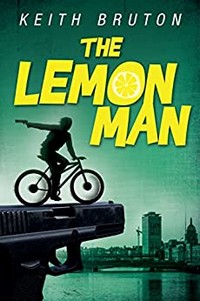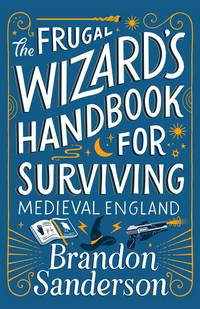 Proxies
Proxies
DETAILS: Publisher: Bert Books Publication Date: August 13, 2022 Format: Paperback Length: 246 pg. Read Date: July 19-20, 2023

What’s Proxies About?
Jair Howard is a tech working to maintain the Faster-Than-Light network. Lambert doesn’t give us a lot of details about it, so I’m going to give you even less. The pilot he works with during his maintenance runs, Merab, is his girlfriend. Or maybe. Jair’s reluctance to commit to starting a family has put things on the ropes.
A bigger—or more pressing, anyway—concern is that during their last trip, Jair found some disturbing evidence of hacking into the security network. He’s having trouble convincing anyone of it because the evidence is largely gone. Jair keeps digging, though, he knows what he saw and anyone who can do what he saw—and remove all traces of it—is someone to worry about. Then some of the evidence reappears, and it points at Jair. Suddenly everyone who doubted what he said about a security breach believes it and is coming for him.
To keep his freedom for a little while longer—and hopefully to find proof of what’s really going on—he needs to get into space and get access to the network. The only way that’s going to happen is with Merab’s help.
Remember When AI Wasn’t the Enemy?
Jair doesn’t work alone—in fact, he doesn’t do most of the work. He has a team of AIs helping him. Jair’s a classic movie fan. Black and White Movies that we consider classics today—he’s far enough into the future that he has to think of them as practically ancient. He’s such a fan that he’s given his four primary AIs the names and personalities of the Marx Brothers.
He spends a lot of time tweaking their personalities and humor to get them to better match the versions he knows from film—and finding a way to get Harpo to be able to communicate what he needs to while capturing the essence of the silent brother. It’s something for him to fiddle with while waiting during interstellar travel or while a report generates and the like.
It’s a fun bit of whimsy in the book—and it felt very strange to read while being hit with headline after headline after headline about the problems with AIs this summer.
So, what did I think about Proxies?
The heart of this book isn’t the threat posed by the hacking that Jair found and then lost, etc. Nor is it the efforts that he and Merab undertook to expose and maybe stop the threat. It’s in Merab and Jair’s efforts to get their relationship to work. The bulk of that is on Jair, to be sure—but Merab has some work to do, too.
That’s about all I’m willing to say about that, although it deserves more—because Lambert did a great job with that. As much as I enjoyed the relationships that the protagonist of his first book found himself in, they didn’t feel as grounded as this one. They were clearly there to serve a story, create conflict, and so on. Here, the relationship is the story—and that makes all the difference. If he continues to grow as an author this way, I’m going to be happy reading him for a long time.
This is a Space Opera, so the details of space flight and other science-y stuff don’t need to be really well worked out or discussed—which is good, because Lambert doesn’t bother to (whether that’s because of the genre, or he went with the genre so he didn’t have to doesn’t matter). And a lot of the detailed work into the investigation can be waved away with “Groucho and Zeppo did a thing and came back to tell Jair the results.” I both wanted to see more of the science-y/investigation bits and was perfectly satisfied with the lack of them, because that left time for all the people-y stuff. (I’m clearly in the mood to talk in generalities today).
If you’re looking for some light Space Opera with a lot of heart—you’ll want to pick up Proxies. If you’re not looking for that, you still might want to try it, it’s a fun way to spend a few hours.

![]()













